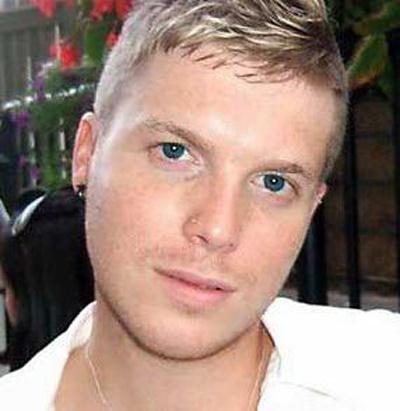
Raymond Taavel was murdered April 17 in Halifax.
On Oct 18, 2009, a gay man, Christopher Skinner, was beaten to the ground by a group of men who then returned to their black SUV, engaged the transmission and crushed him to death under both sets of its wheels. The attack happened near the corner of Adelaide St E and Victoria St in downtown Toronto, just blocks from the gay village.
A vigil on Toronto’s Church St in the following days drew easily more than a thousand people. The crowd marched to Queen’s Park in solidarity and to demand that politicians and police find the thugs who murdered Skinner and do something to ensure that Toronto’s streets are safe for gay people.
Despite several eyewitnesses, a large reward and several CCTV video recordings, Skinner’s killers have, incidentally, not been identified or apprehended.
Now, in the early morning hours of April 17, Halifax gay activist and former Wayves editor Raymond Taavel was brutally murdered on a Halifax street. It happened just steps from the city’s popular gay watering hole just moments after Taavel left the bar. Witnesses say that the assailant was inside the bar prior to the attack but that he was refused service by the staff. Witnesses say further that a man spewing homophobic epithets attacked Taavel and his friend. The man beat Taavel to the ground before smashing his head into the street, killing him.
As the story of Taavel’s murder unfolded yesterday, I began to see parallels between it and Skinner’s murder; parallels that loomed in increasing intensity in my thoughts. Both Skinner and Taavel were well-known and liked in their respective gay communities. Both had reputations as men who, while loving and gentle, simply would not suffer homophobic bullshit. In both cases, those who knew the dead men told me exactly the same thing: “He would not take any crap from anyone.”
In both cases, it’s likely the assailants knew their victims were gay. Both men were a little bit fey. They showed. One was attacked outside a gay bar, another just blocks from the largest concentration of gay households in the country.
And in both cases the immediate reaction from gay communities was an outrage that too quickly diffused, redirected by reports of seemingly extenuating circumstances. In Skinner’s case the story was – unsubstantiated by the press to this day – that Skinner bumped the SUV carrying the men who killed him, thereby attracting their attention, precipitating his own death; in Taavel’s case, that he tried to break up a fight and that the assailant might have been AWOL from a psychiatric hospital. Both Skinner and Taavel, the inference goes, may simply have chosen the wrong battles against the wrong men at the wrong times and in so doing, made choices themselves that led to their own deaths.
And both police services at the centres of the investigations into these crimes issued similar statements:
“There has been speculation online and in the community that this was a hate crime,” Halifax Regional Police spokesman Brian Palmeter told CBC News yesterday. “While we cannot provide specific information about the case, as it is still under investigation, police have spoken to a number of witnesses and are considering all possibilities with respect to the motive.”
And in both cases too many people, gay and otherwise, shrugged their shoulders as details emerged in the cases as they suggested that what happened were merely horrible tragedies; that niether murder might reasonably be called a hate crime. We should, they argue, in the interests of accuracy, avoid suggesting that either of these men died because of their sexualities.
Let’s face it: these gay men were both struck down senselessly while attempting to defend themselves against homophobia. And both were gay men killed hatefully on the doorsteps of their own communities. Those points alone ought to be enough to inspire rage.

 Why you can trust Xtra
Why you can trust Xtra


